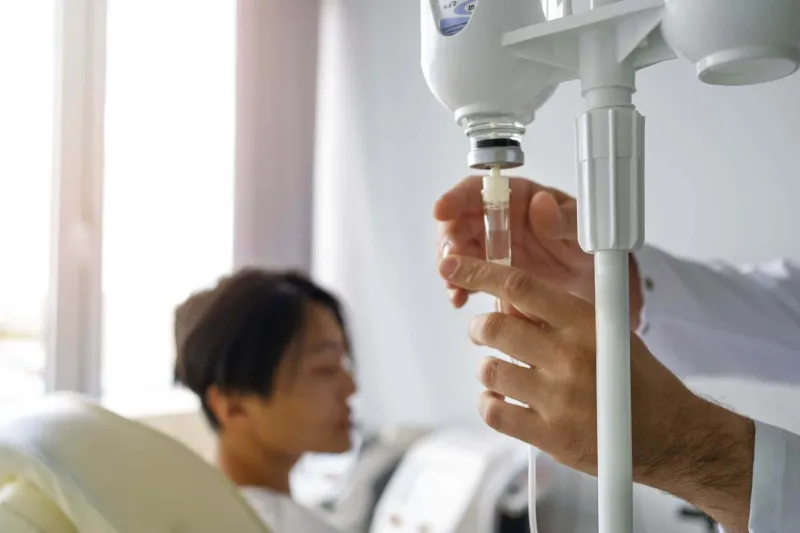Post-traumatic stress disorder (PTSD) is an anxiety disorder that can occur after experiencing or witnessing a traumatic event. It affects millions worldwide, often leading to debilitating symptoms such as fear, intrusive memories, nightmares, and flashbacks. PTSD can severely impact the quality of life, but there is hope: therapy has been proven effective in treating this condition. In this article, we will explore the role of therapy in helping those with PTSD cope with their symptoms and regain control of their lives.
Definition Of PTSD
Pervasive post-traumatic stress disorder (PTSD) is a psychological trauma that often requires treatment. People who experience it may have intense feelings of fear and helplessness, as well as recurrent memories of the event, nightmares, flashbacks, or emotional numbness. PTSD can be triggered by any traumatic event, such as war, natural disaster, car accident, sexual assault, etc., where an individual experiences or witnesses a threat to their life or physical integrity.
The symptoms of PTSD vary from person to person but generally include re-experiencing the trauma through intrusive thoughts or images; avoidance behaviors to stay away from reminders related to the trauma; heightened arousal levels like difficulty sleeping and concentrating; and negative changes in moods and beliefs about oneself which can lead to depression or anxiety. Individuals with PTSD need to seek early help to minimize its effects over time.
Therapists use different approaches when treating patients with PTSD depending on their needs. Talking therapy – also known as psychotherapy – is one of the most common forms of treatment used today.
Causes Of PTSD
Generally speaking, someone will develop PTSD when they experience a traumatic event or prolonged exposure to a threatening situation. This could include serving in combat, being involved in an accident or natural disaster, facing physical injury, or enduring emotional trauma. These events can cause strong feelings of fear and helplessness that linger even after the threat has passed.
It is also possible for people to develop PTSD following a single incident of extreme stress, such as witnessing violence against a loved one or surviving a life-threatening situation. They may feel overwhelmed by their emotions and lack the necessary coping skills to deal with them. As a result, long-term symptoms of anxiety and depression may occur.
Furthermore, underlying factors such as genetics and lifestyle choices may play a role in increasing vulnerability to developing PTSD. For instance, research suggests that individuals who have experienced other forms of trauma earlier in life are more likely to be affected by subsequent traumas than those who haven’t had similar experiences.
Psychological interventions are among today’s most successful treatments when addressing trauma’s effects. Different types of therapies—like cognitive behavioral therapy (CBT), exposure therapy, and eye movement desensitization and reprocessing (EMDR)—have all been shown to reduce symptoms associated with PTSD. Through these approaches, individuals build new coping skills and gain insight into how their thoughts influence emotions and behaviors.
Types Of Therapy For PTSD
There are various types of psychotherapy, such as exposure therapy, cognitive processing therapy, group therapy, dialectical behavior therapy (DBT), and art therapy.
Exposure Therapy involves gradually confronting trauma-associated memories through talking or imaginal re-experiencing the event in a safe environment. The goal is to reduce fear responses associated with traumatic memories and help individuals gain control over their emotions by facing these difficult situations head-on.
Cognitive Processing Therapy focuses on assisting people in reframing their thoughts about the traumatic experience so they can move forward from it more effectively. This form of treatment helps clients identify any distorted thinking patterns related to the traumatic event, understand what might have triggered those distortions, and learn how to manage them better going forward.
Group therapy allows patients to share experiences in a supportive atmosphere with others with similar issues. It also provides opportunities for problem-solving and social support among members. Dialectical Behavior Therapy (DBT) emphasizes developing skills in four key areas – mindfulness, emotion regulation, distress tolerance, and interpersonal effectiveness – while working towards achieving a balance between acceptance and change within oneself.
Last but not least is Art Therapy; this type of treatment uses visual arts activities such as painting or drawing to allow individuals affected by trauma to express themselves nonverbally if needed.
Furthermore, therapists create safe spaces where clients feel comfortable exploring their feelings without judgment, encouraging them to accept themselves despite any traumas they’ve endured. For many people struggling with PTSD, receiving support from a mental health professional is essential for recovery and improved quality of life.

Benefits Of Therapy For PTSD
When it comes to an understanding of how effective PTSD therapy can be, research has shown that different forms of treatment can lead to positive outcomes. Studies have found that CBT can help individuals adjust their thought processes to process traumatic experiences better and build resiliency against future stressors.
In addition, studies have demonstrated that exposure therapy is another effective form of PTSD therapy that helps patients confront fearful memories while under the guidance and support of a professional therapist. This approach works by gradually exposing an individual to trauma-related cues until they no longer elicit fear responses, thereby reducing overall anxiety levels and allowing them to move beyond their original trauma eventually.
Other forms of therapy, such as supportive psychotherapy, may also provide many therapeutic benefits, including improving communication skills, learning problem-solving techniques, building self-confidence, and increasing feelings of self-worth through achieving meaningful goals.
These evidence-based treatments offer individuals suffering from PTSD opportunities to learn valuable life skills related to managing symptoms while creating healthier relationships with those around them. Therefore, it is important that when considering the use of therapy for treating PTSD, consider its potential effectiveness before choosing what type might best suit one’s needs.
Considerations For Choosing The Right Therapy
When considering the role of therapy in treating PTSD, it can be compared to finding a key that fits into the lock. Finding the right one requires time and energy – but when you do, it can open up an entirely new world.
When selecting a therapist for PTSD treatment, there are several considerations to take into account:
-
- The right therapist – Finding a mental health professional specializing in trauma therapy is important. Ask questions about their experience with treating patients with PTSD and any specialized training they may have.
- Therapy type – Depending on the individual’s needs, different types of therapies can be considered, such as cognitive-behavioral therapy (CBT) or dialectical behavior therapy (DBT).
- Cost considerations – Therapy services come at varying costs depending on factors like location and provider. Check if your insurance covers all the costs and ask about payment options if needed.
Choosing a therapist that makes you feel comfortable and understood is essential to get the most out of your sessions. Take some time researching until you find someone who meets your specific requirements for quality care.
Conclusion
PTSD is a serious condition that can have devastating effects on an individual’s mental health. Fortunately, many therapies are available to help those struggling with this disorder. However, when considering the best treatment option for someone with PTSD, it is important to evaluate each potential therapy and determine which one will be most beneficial.
At Sunshine Infusion, we offer a proven and effective alternative treatment to help individuals cope with PTSD symptoms while developing a healthy coping mechanism. Let us help you move forward in life without being held back. Contact us now.




